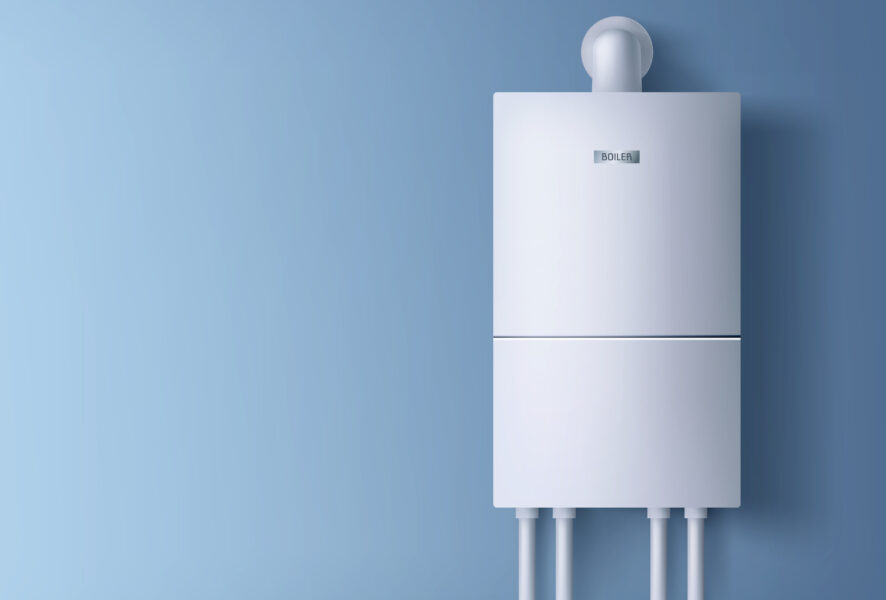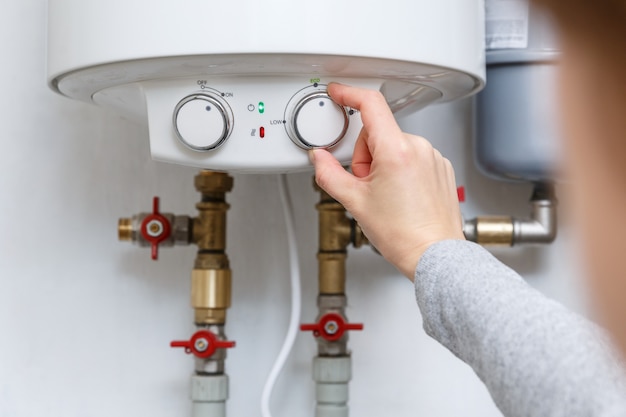The water heater in your house is one of those things that, until it breaks, you usually don’t give much thought to. We are all strongly dependent on having enough hot water for everything, from running the dishwasher to taking hot showers. However, water heaters have a limited lifespan, much like any other item that has heating elements and a tank.
When should you finally replace your water heater to avoid a disastrous breakdown? An average tank water heater lasts for eight to twelve years. However, even before you reach that decade milestone, there are some clear indicators that yours might be coming to an end.
The good news is that most water heaters will alert you to potential problems before they break down entirely. You can prevent a catastrophic breakdown and water damage disaster by being aware of those warning indicators.
Here are several signs that your reliable water heater needs to be replaced.

In general, it’s a good idea to start keeping a watchful eye out for issues if your water heater is older than ten years. Look at the sticker on the manufacturer to find out how old yours is. Water heaters are more vulnerable to leaks and other problems as their lifespan gets closer to its end. It is typically less expensive to replace an older machine than to pay for numerous repairs.
Rusty, discolored hot water flowing from your faucets is one of the most typical indicators that your water heater is getting older. This suggests that internal corrosion is occurring within the steel tank. You can tell if the rust is coming from the heater or the pipes by draining a few buckets from the tank.
Rust indicates that the water heater should be replaced as soon as possible to avoid a leak or burst that could result in water damage. Internal corrosion can also be indicated by smaller leaks near the entrance valve or tank.
When in use, does your water heater make loud popping, cracking, or rumbling noises? Hardened buildup of sediment in the tank, which produces hot areas that might harm the liner, is frequently the cause of this racket. Once damage has occurred, these noises usually persist even after the tank has been flushed.
Even though recently built-up sediment can be cleared out, excessive noise indicates that the life of your tank is nearing its end. At this stage, replacing might be less expensive than repairing.

If you’ve noticed that you’re not getting enough hot water lately, there may be several distinct causes. There could be a problem with the heating element or the thermostat has to be adjusted. See if a simple fix could prolong the life of your water heater by having it checked out by an expert.
On the other hand, if there is absolutely no hot water, it may be a sign that the tank is too small to meet the needs of your household, particularly if more people have moved in. Then, it is advised to upgrade to a larger tank.
If water is accumulating around the base of a water heater, it needs to be replaced right away. Hairline fractures may emerge as the tank ages and withstands tens of thousands of heating and cooling cycles; these fractures might cause water to leak slowly.
This not only wastes money and energy, but if a leaking tank is overlooked, it can quickly result in significant water damage. If the entire tank bursts, just think that all the floors, walls, and possessions would flood! Leaks are an obvious indication that the appliance has to be replaced right away.
Have you seen a steady rise in your energy costs without any apparent cause? Water heaters lose some of their heating efficiency with age and the accumulation of mineral sediment. To supply the same volume of hot water, this forces them to work harder and consume more energy—and money!. Should your water heating expenses appear excessively elevated, it can indicate that it’s time to replace your tank with a more modern and energy-efficient one.
When a water heater begins to require regular repairs to keep it functioning, even with careful maintenance like annual flushing, it’s probably more economical to replace it rather than put up with more problems down the road. Spending money on constant repairs for an outdated, malfunctioning machine is frequently better used to purchase an entirely new system.
Although your water heater might last ten years or longer, it is not advisable to extend its lifespan. The equipment is close to breaking down if issues like leaks, noise, rust, or no hot water start to occur.
Replacing the water heater on your schedule, not the emergency plumber’s, is the best course of action. Postponing it typically results in fewer options for the model and increased labor expenses when the inevitable leak occurs at the worst possible time.
Call Vossler Plumbing Co. for your water repair, maintenance, or replacement.
Get in touch with us at 713-688-2304 to get started!
Whatever you’re experiencing, we have the technical expertise to help. Click below to share your information along with any specific details or photos, and we’ll be in touch with you as soon as possible with an estimate.